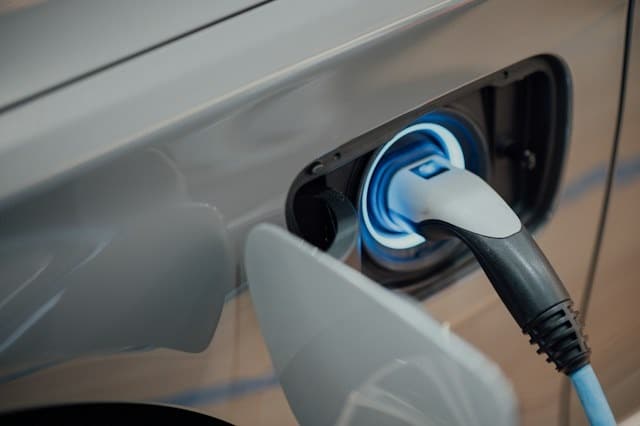
Electric vehicles (EVs) have fewer moving parts than traditional combustion engine vehicles, but that doesn't mean you can neglect their maintenance. Many of the same components still require regular upkeep, although the timescales may be different for an EV. Additionally, certain EV parts have unique maintenance requirements. We've put together some primary maintenance tasks to consider when looking after your EV. If you have any further questions after reading, please don't hesitate to contact us or view our current inventory of electric cars for sale in the Venice area.
When Do I Need an EV Service?
You'll likely need fewer maintenance appointments for an EV than a gas-powered car. For example, you don't need to worry about oil changes and inspecting many of the engine's components since EVs run on an electric motor powered by a battery. However, some regular maintenance tasks remain necessary, meaning you'll still need to schedule a service appointment every six months or so. You can check your owners manual for more precise recommendations.
External factors can also influence your maintenance schedule, such as the weather where you live. For instance, if you live in an area where they use salt to melt snow and ice on the roads, you'll likely have to inspect your brake pads and calipers more often than usual to check for wear and tear. Sticking to these types of recommendations is essential, since they can help extend the life of your car and ensure that it maintains top performance.
What Services Do I Need?
One service you'll need, regardless of whether you drive an EV or a gas-powered car, is tire rotations. You should rotate your tires after six months or 6,000 to 7,000 miles of driving. Rotating the tires helps to guard against uneven treadwear and increases their longevity.
It's worth noting that your tires may wear out more quickly in an EV than in a traditional gas-powered car due to the extra weight from the battery pack. While tires often last five or six years for the average driver in a gas-powered vehicle, you may need to replace them after three to four years on an EV.
Another crucial aspect of maintaining an EV is its cooling system. EVs use airflow or coolant to regulate the temperature of the battery, motor, and other components while driving, as extreme temperatures can harm them. If your vehicle relies on airflow, you'll need to have the hoses checked and filters replaced regularly, usually once a year. If you use coolant, you must flush it and check the lines at regular intervals to prevent any issues from arising.
Like gas-powered cars, EVs also need well-functioning windshield wipers. Wipers are generally suitable for about a year of use, so you should expect to make a service appointment every 12 months or so to get them changed.
EVs also use brakes, so you'll need to service your pads and brake fluid as you would with a gas-powered vehicle. The one big difference is that your brakes are used less frequently due to the regenerative braking used by electric cars. This process involves the electric motor withdrawing energy and returning it to the battery when you slow down, reducing the need for your brake pads to bring your car to a stop. As a result, brake pads on an EV should last much longer than the two- to three-year period that's common in a traditional vehicle.
Cost of EV Repairs
The amount you'll need to spend on EV maintenance will likely be less than on a gas-powered vehicle. You'll save the approximately $100 you'd spend on an oil change every six months. However, you'll still need to pay for brake pads, tires, and windshield wipers, among other components, when it comes time to replace them. The battery pack is the most expensive component of an EV, but it usually has a long life span. However, it can cost thousands of dollars to replace.
Battery Maintenance
The estimated battery life for most EVs is 12 to 15 years. Because most EVs have only been available recently, how this estimate turns out in practice remains to be seen. We expect that the working life of battery packs will drop to 8 to 12 years in areas with extremely hot or cold temperatures. This is because batteries are under more strain when they operate in extreme weather conditions.
Another factor impacting your battery's life span is how often you use fast chargers. While using a fast charger now and again won't pose too many problems, charging your battery in this manner all the time can reduce its longevity. In addition, it's worth trying to avoid letting your battery run out of power or charging it to 100% capacity because doing so can encourage your battery to wear out quickly.
However, the most significant advantage of an EV battery is that it generally requires no maintenance during its lifetime. One of our expert Sunset Cadillac service team members can inspect it occasionally to ensure there are no apparent signs of problems. Otherwise, you can keep driving your EV without having to worry too much about it.
Service Your EV at Sunset Cadillac of Venice
Are you ready to book your EV's next service appointment? Our Sunset Cadillac dealership in Venice, Florida, has the technical equipment and know-how to carry out all your EV maintenance needs, including tire rotations, brake inspections, fluid flushes, and air filter replacements. You can select your preferred service appointment by using our online scheduling tool or swing by our dealership during business hours. We look forward to providing you with high-quality car maintenance using original equipment manufacturer Cadillac parts so you can get back on the road in no time.
White and blue plastic tool by CHUTTERSNAP is licensed with Unsplash License
